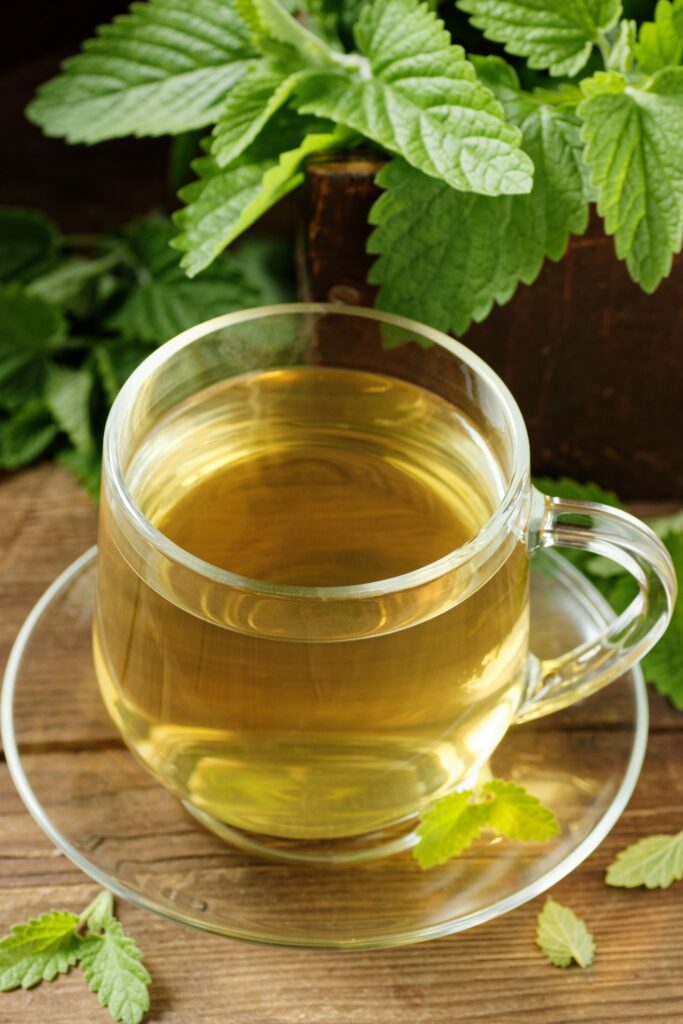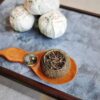
Pregnancy is a remarkable journey, filled with excitement, anticipation, and a heightened awareness of the choices you make to ensure the well-being of both you and your unborn child. As you navigate this transformative phase, you may find yourself seeking natural remedies to alleviate common discomforts or enhance your overall health. One such option that has garnered attention is lemon balm tea. But is it safe to consume during pregnancy? In this comprehensive guide, we’ll explore the potential benefits, risks, and precautions surrounding the consumption of lemon balm tea while expecting.
What is Lemon Balm Tea?
Lemon balm, scientifically known as Melissa officinalis, is a perennial herb belonging to the mint family. Its leaves have a distinct lemon-like aroma and flavor, making it a popular ingredient in herbal teas, culinary dishes, and traditional medicine. Lemon balm tea is prepared by steeping the dried leaves in hot water, allowing the beneficial compounds to infuse into the beverage.
Nutritional Benefits of Lemon Balm Tea
Lemon balm tea is a rich source of various nutrients and compounds that contribute to its potential health benefits. Here are some of the key components found in this herbal infusion:
- Antioxidants: Lemon balm contains flavonoids, phenolic acids, and other antioxidants that help neutralize harmful free radicals in the body, reducing oxidative stress and inflammation.
- Vitamins and Minerals: This tea is a good source of vitamins A, C, and B-complex, as well as minerals like calcium, magnesium, and potassium, which are essential for overall health and fetal development.
- Volatile Oils: Lemon balm contains volatile oils, such as citronellal, geraniol, and linalool, which contribute to its calming and sedative properties.
Lemon Balm Tea and Pregnancy: Is it Safe?
The safety of consuming lemon balm tea during pregnancy is a topic of ongoing debate and research. While some experts consider it safe in moderate amounts, others advise caution due to the lack of comprehensive studies on its potential effects on the developing fetus.
According to the American Pregnancy Association, lemon balm is generally regarded as safe for consumption during pregnancy when used in small amounts, such as in food or as a flavoring agent. However, they recommend consulting with a healthcare professional before consuming lemon balm tea or supplements, especially in larger quantities.
It’s important to note that the safety of herbal teas can vary depending on the individual’s health condition, stage of pregnancy, and the quality and dosage of the tea. Always consult with your healthcare provider before incorporating any new herbal supplement or tea into your pregnancy routine.
Potential Benefits of Lemon Balm Tea during Pregnancy
While research on the specific effects of lemon balm tea during pregnancy is limited, some potential benefits have been suggested based on the herb’s traditional uses and scientific studies:
- Stress and Anxiety Relief: Lemon balm has been traditionally used for its calming and sedative properties, which may help alleviate stress and anxiety during pregnancy. However, it’s essential to consult with a healthcare professional before using it for this purpose, as excessive sedation could be harmful.
- Sleep Aid: The mild sedative effects of lemon balm tea may help promote better sleep, which is crucial during pregnancy when discomforts like back pain, leg cramps, and frequent urination can disrupt sleep patterns.
- Digestive Support: Lemon balm tea has been used traditionally to soothe digestive issues like nausea, vomiting, and bloating, which are common during pregnancy. However, more research is needed to confirm its efficacy and safety for this purpose.
Risks and Precautions of Drinking Lemon Balm Tea while Pregnant
While lemon balm tea is generally considered safe in moderation during pregnancy, there are some potential risks and precautions to consider:
- Interactions with Medications: Lemon balm may interact with certain medications, including sedatives, thyroid medications, and drugs metabolized by the liver. It’s crucial to consult with your healthcare provider before consuming lemon balm tea if you’re taking any prescribed medications.
- Excessive Consumption: Consuming large amounts of lemon balm tea or supplements may lead to adverse effects, such as increased drowsiness, dizziness, or nausea. Moderation is key, and it’s best to stick to the recommended dosages or consult with a healthcare professional.
- Quality and Contamination Concerns: As with any herbal product, there is a risk of contamination or adulteration. It’s essential to purchase lemon balm tea from reputable sources and follow proper storage and preparation guidelines to ensure its safety.
- Individual Sensitivity: Some individuals may experience allergic reactions or adverse effects when consuming lemon balm tea, even in small amounts. If you experience any unusual symptoms after drinking the tea, discontinue use and consult with your healthcare provider.
Alternatives to Lemon Balm Tea during Pregnancy
If you’re hesitant about consuming lemon balm tea during pregnancy or prefer to explore other options, there are several alternatives you can consider:
- Ginger Tea: Ginger has been traditionally used to alleviate morning sickness and nausea during pregnancy. However, it’s essential to consult with your healthcare provider regarding the appropriate dosage and duration of use.
- Raspberry Leaf Tea: Raspberry leaf tea is believed to help prepare the uterus for labor and may also provide essential nutrients like iron, calcium, and vitamins. However, it’s generally recommended to consume it in moderation and only during the later stages of pregnancy.
- Chamomile Tea: Chamomile tea is a gentle, caffeine-free option that may help promote relaxation and ease digestive discomforts. It’s generally considered safe during pregnancy, but moderation is advised.
- Peppermint Tea: Peppermint tea may help alleviate nausea, vomiting, and digestive issues during pregnancy. However, it’s important to consult with your healthcare provider, as some individuals may experience heartburn or other adverse effects from consuming peppermint tea.
Remember, it’s always best to consult with your healthcare provider before incorporating any new herbal tea or supplement into your pregnancy routine.
How to Prepare Lemon Balm Tea for Pregnancy
If you choose to consume lemon balm tea during pregnancy, it’s essential to follow proper preparation guidelines to ensure its safety and quality:
- Use High-Quality Ingredients: Purchase lemon balm tea leaves or bags from reputable sources to ensure you’re getting a high-quality, uncontaminated product.
- Follow Brewing Instructions: Carefully follow the brewing instructions provided on the package or consult with a healthcare professional for the appropriate steeping time and water temperature.
- Moderate Consumption: Stick to the recommended dosage, typically one to two cups per day. Excessive consumption may lead to adverse effects.
- Avoid Additives: Opt for plain lemon balm tea without added sweeteners, flavorings, or other ingredients, as these may introduce unnecessary risks or complications.
- Store Properly: Keep the lemon balm tea in an airtight container, away from direct sunlight and moisture, to maintain its freshness and potency.
Other Herbal Teas to Consider during Pregnancy
In addition to lemon balm tea, there are several other herbal teas that may provide potential benefits during pregnancy, when consumed in moderation and under the guidance of a healthcare professional:
- Red Raspberry Leaf Tea: Rich in vitamins and minerals, this tea is believed to help prepare the uterus for labor and may also aid in postpartum recovery.
- Rooibos Tea: A caffeine-free alternative, rooibos tea is rich in antioxidants and may help alleviate discomforts like nausea and heartburn.
- Nettle Tea: Packed with nutrients like iron, calcium, and vitamin K, nettle tea may support overall maternal health and aid in preventing anemia.
- Ginger Tea: Known for its potential to alleviate morning sickness and nausea, ginger tea can be a soothing option during pregnancy.
Remember, it’s always advisable to consult with your healthcare provider before incorporating any new herbal tea into your pregnancy routine, as individual circumstances and sensitivities may vary.
Making an Informed Decision about Lemon Balm Tea during Pregnancy
Deciding whether to consume lemon balm tea during pregnancy is a personal choice that should be made after careful consideration and consultation with your healthcare provider. While lemon balm tea is generally regarded as safe in moderation, it’s crucial to weigh the potential benefits against the risks and precautions.
If you choose to incorporate lemon balm tea into your pregnancy routine, ensure that you purchase high-quality products from reputable sources, follow proper brewing and consumption guidelines, and remain vigilant for any adverse reactions. Additionally, it’s essential to maintain open communication with your healthcare provider and disclose any herbal supplements or teas you’re consuming.
Ultimately, prioritizing your health and the well-being of your unborn child should be the guiding principle in making an informed decision about consuming lemon balm tea or any other herbal supplement during this special time.






